Untitled Document
| Career & Success |
|
Madhya Pradesh Chief Minister Awarded CRISP for excellent work done in Skill Development
28 March 2023
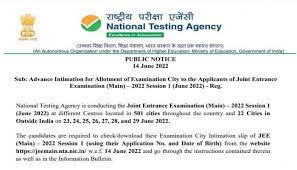 The National Testing Agency (NTA) will conduct the Joint Entrance Exam (JEE) Mains Session 2 from April 6, onwards. According to the official schedule, the JEE Main session 2 will be held on April 6, 8, 10, 11, and 12, with April 13 and 15 as reserve dates. According to reports, the exam city information slip is expected to be released soon. Once it is issued, candidates can download it from the official website at jeemain.nta.nic.in.
The National Testing Agency (NTA) will conduct the Joint Entrance Exam (JEE) Mains Session 2 from April 6, onwards. According to the official schedule, the JEE Main session 2 will be held on April 6, 8, 10, 11, and 12, with April 13 and 15 as reserve dates. According to reports, the exam city information slip is expected to be released soon. Once it is issued, candidates can download it from the official website at jeemain.nta.nic.in.
The dates of Advance Intimation of Examination City, downloading of Admit Cards, and declaration of Result will be displayed on JEE (Main) portal at the appropriate time, reads an official notice.
It is important to note that the JEE Main examination city slip is different from admit cards. The city slip will mention the name of the city in which candidates examination centres will be located. With the release of the JEE exam city slip, candidates will be able to make their travel and stay arrangements, accordingly.
Meanwhile, the admit card will feature other important details such as the name of the candidate, gender, date of birth, category, exam date and time, photo, signature, roll number, application number, and exam centre. Also, the exam city slip will be released before the admit card.
Former CEO of Tata CLiQ has been picked by Facebook Meta as its Global Business.
Our Correspondent : 10 January 2023
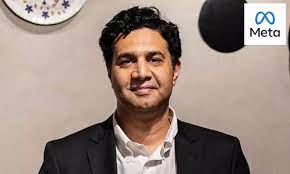 Meta has appointed Vikas Purohit as Director of Global Business Group in India. He will report to Arun Srinivas, Director and Head of Ad Business, Meta India. Vikas Purohit has vast experience in business, sales and marketing. He has worked in this field for over 20 years. He has held major responsibilities at Tommy Hilfiger, Reliance Brands, Amazon Fashion and Tata CLiQ. Meta has appointed Vikas Purohit as Director of Global Business Group in India. He will report to Arun Srinivas, Director and Head of Ad Business, Meta India. Vikas Purohit has vast experience in business, sales and marketing. He has worked in this field for over 20 years. He has held major responsibilities at Tommy Hilfiger, Reliance Brands, Amazon Fashion and Tata CLiQ.
Welcoming Vikas Purohit, Srinivas said that he has joined the team to enable businesses, support India's economic growth and shape the role of meta platforms in building the country's digital advertising ecosystem.
As Global Business Group Director, Vikas Purohit will lead Meta's work with India's largest businesses and agency ecosystem. He will lead Meta's strategic relationships with leading brands to help grow the company's revenue. At Meta the company's key business vertical teams, agency teams and business solutions teams will report to him.
Who is Vikas Purohit Vikas Purohit studied B.Tech in Mechanical Engineering at the Indian Institute of Technology (BHU) in Varanasi in 1996-2000.
Vikas Purohit has 20 years of experience in business, sales and marketing roles. An alumnus of the Indian Institute of Management, Vikas Purohit has worked at Tata CLIQ, Amazon, Reliance, Aditya Birla Group and Tommy Hilfiger.
Vikas Purohit began his 20-year career as a management trainee at the Aditya Birla Group in 2002. From where Vikas Purohit moved on to Tommy Hilfiger and then ventured into retail by joining Reliance Brands.
At Amazon, Vikas Purohit led Amazon Fashion and worked in fashion. Vikas Purohit was working as CEO of Tata CLiQ before Meta appointed him as Global Business Group Director. He joined Tata CLiQ as COO and was promoted to CEO in 2016. On Monday, January 9, Meta appointed him as director of the Global Business Group in India.
Madhya Pradesh Chief Minister Awarded CRISP for excellent work done in Skill Development
Our Correspondent, 3 Aug. 2015
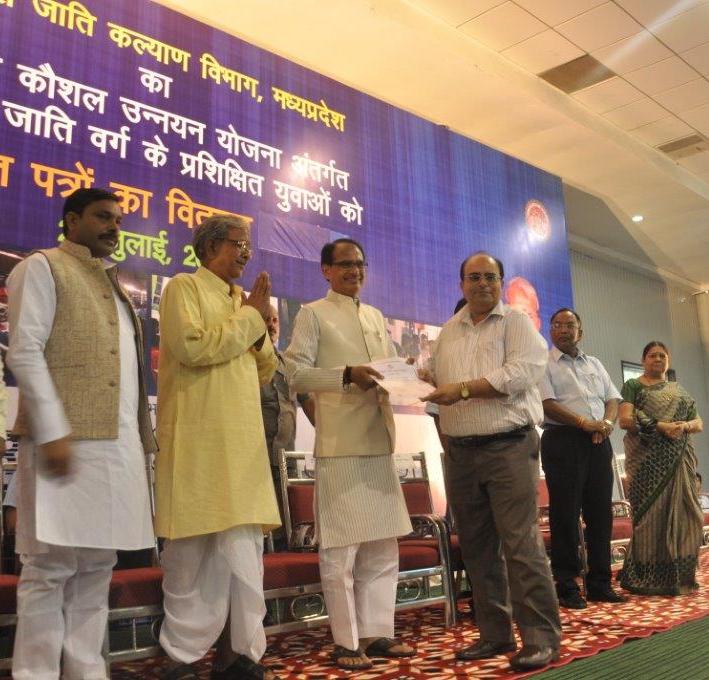 Honorable Chief Minister of Madhya Pradesh Shri Shivraj Singh Chouhan has awarded appreciation certificate to CRISP for excellent work done in Skill Development activities. The award was received by Chief Executive Officer, Mr. Mukesh Sharma.
Honorable Chief Minister of Madhya Pradesh Shri Shivraj Singh Chouhan has awarded appreciation certificate to CRISP for excellent work done in Skill Development activities. The award was received by Chief Executive Officer, Mr. Mukesh Sharma.
A function was organized to distribute appointment letters to SC students trained by CRISP. The training was sponsored by Department of SC Welfare, Government of Madhya Pradesh. CRISP has trained 300 youth from Scheduled Caste category and around 50% of them got employment.
Mukesh Sharma, CEO, CRISP India says " CRISP is inching closer to its vision
of being the most admired learning and skill development training centre , enabling sustainable transformation.
Centre for Research and Industrial Staff Performance, (CRISP), Bhopal has been established in the year 1997 as a Society under the Indo-German Technical Cooperation agreement.
Ministry of MSME, Government of India was the line ministry for this project whereas the Department of Technical Education & Skill Development, Government of Madhya Pradesh and German Technical Cooperation agency (GTZ) were the implementation partners.
It is head quartered in Bhopal with national & international operations dedicated to human resource development & organizational development. These activities are targeted at Government, Industries, Academic Institutions, Developmental Organizations as well as the Civil Society.
Research management: Priorities for science in India
Our Correspondent : 13 May 2015
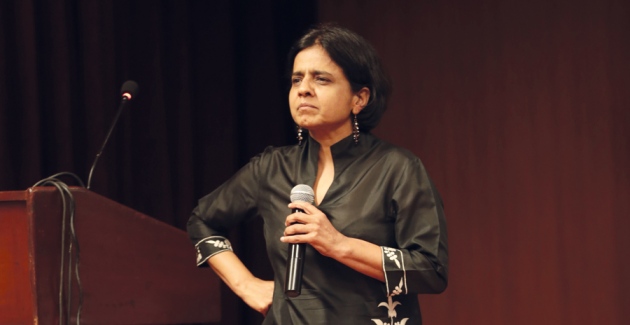 Sunita Narain: Manage waste frugally
Sunita Narain: Manage waste frugally
Director-general, Centre for Science and Environment, New Delhi
India has a huge waste problem. Untreated sewage is defiling rivers and water bodies; industrial chemicals such as cadmium and nitrates are seeping into the ground and polluting the air; and solid waste from kitchen scraps and plastic packaging is piling up in our cities. The problem requires more than management. We need innovative and realistic solutions that match our pockets and our regulatory and governance abilities.
Take sewage. Flushing excreta down toilets is expensive and resource intensive. It uses water as both the carrier and the final dumping point. This approach works in countries that have the means to build huge water-supply and retrieval infrastructures and to pay for maintenance and upgrades of technologies to manage and treat pollutants - from biological waste to toxins. It does not work in India, where there are limited funds for supplying essential services to more than one billion people. A country that is poor - but fast becoming richer and more wasteful - needs a whole new paradigm.
The key obstacle is that everyday challenges are not top priorities for research and innovation. Indian science has always been fascinated by the 'masculine' agendas of space and genetics, not reinventing the toilet.
Instead, science must meet the needs of poor people. We need to devise ways to prevent pollution rather than cleaning it up afterwards. Indian research has to be more humble, nimble and investigative. It has to learn from its poorest and most illiterate people: how they cope with scarce and diverse resources by being frugal and in tune with their environment.
India's ambition should be to become the front-runner in the race to save the planet.
Hiriyakkanavar Ila: Support the bulk of students
Professor of chemistry, Jawaharlal Nehru Centre for Advanced Scientific Research, Bangalore
India's university system is broken. The higher-education system was started by the British in 1857 with the establishment of three universities - Calcutta, Bombay and Madras - and 28 affiliated colleges. After independence in 1947 and the creation of the University Grants Commission (UGC) in 1956, the number of universities grew exponentially. Today, there are more than 600, including about 200 private ones. Of the public universities, 46 are funded by central government the rest by state governments. A few, such as the central University of Hyderabad, do world-class research.
In addition to these, to improve training in basic sciences and technology, the government established 16 Indian Institutes of Technology and 5 Indian Institutes of Science Education and Research. There are also about 40 Council of Scientific and Industrial Research laboratories engaged in applied research, along with a few premiere research institutes, including my own.
The handful of these that compete at the international level contribute the bulk of high-quality scientific research in India. But they educate a tiny fraction of our students.
Facilities and teaching at the universities that serve more than 29 million students are alarming. Most are 'chalk and talk' classrooms with poor-quality teaching laboratories, let alone research laboratories. Faculty appointments are often made on the basis of political connections, caste or bribes, and funds are misappropriated. Inbreeding results: many highly qualified young scientists refuse to take up faculty positions in these universities because of the lack of infrastructure, the hostile environment and bureaucracy.
This is a disturbing situation. India needs trained, innovative minds to meet its formidable challenges. The state and central governments should take urgent action.
The government should appoint highly qualified, broad-minded vice-chancellors, who will recruit qualified faculty members and give them state-of-the-art research facilities with no external interference. Faculty should then focus on basic research and quality teaching, and encourage regional and international collaboration networks to strengthen scientific research. The government should also create many specialized research centres in the universities (like the CNRS in France). Fixing our university system will require a complete overhaul of the UGC, changes in institutional policy and legislation. This will be difficult with the present disconnect between science and policy in a government that has cut research budgets, focused on manufacturing and dissolved its scientific advisory committee.
Yamuna Krishnan: Crack the cliques, enable visionaries
Professor of chemistry, University of Chicago, Illinois
To catapult India into the top five scientific nations, the country needs enabling policies that money can't buy. India has huge positives but it is hamstrung by socio-cultural issues, two of which I address here: a herd mentality and a paucity of early-stage mentorship. My ideas stem from my 15 years as a graduate student and young research-group leader in India.
Having recently moved from the National Centre for Biological Sciences in Bangalore to Chicago, Illinois, I have noticed a fundamental difference in the attitude of young US scientists from that of their Indian counterparts: their appetite for big problems. 'Going for great' is a skill acquired very early on in the West. Senior researchers spot gifted graduate students, connect them with the best scientific mentors, nurture them and ensure their visibility over decades.
In India, researchers generally start being mentored only when they show promise as young principal investigators. Thus a fresh returnee from a leading postdoctoral lab abroad suddenly becomes essentially invisible to key collaborators or contacts at home and elsewhere. This results in the returnee pursuing quality problems fragmented into smaller stories for more publications, but of lower visibility. The strategy is to edge slowly towards the big ideas. Often, these big ideas are either suddenly solved by counterparts in the West, or become outdated. A top-down, merit-based, long-term mentorship scheme - starting at the graduate-student stage - could prove transformative.
Cultivating excellence is a selective process that can be perceived as elitist. But India is trying its best to become an egalitarian society. It has some outstanding senior scientists - visionaries who care deeply about taking their nation from good to great. But their efforts are neutralized by a pedestrian majority intent on preserving the status quo.
Instead, these visionaries need to be empowered to take the tough decisions to make Indian science a meritocracy. We must take a census of researchers in all disciplines. Then, preserve scientists with research programmes of international standing, regardless of age, solely on the basis of performance during the past five years. Give them abundant support to ratchet up their programmes. Identify experienced scientists who could each nurture and mentor 5–10 emerging scientists and bring them up to an outstanding level. From such a platform, break open the moribund coteries that hold the system to ransom without themselves doing cutting-edge research. If this can be done, India will soon emerge as a scientific superpower.
I still bubble with optimism. India allows young people with the right attitude to thrive. The nation's history has many examples of the conscience of the majority successfully rejecting deeply embedded socio-cultural mindsets.
Being multifaceted never bores you: Meiyang Chang
Our Correspondent : 13 May 2015
 New Delhi: He's a dentist by profession -- and a singer, actor and anchor by choice. 'Indian Idol' fame Meiyang Chang, who belongs to the Chinese community in India, says donning multiple hats is a "wonderful trend" in Bollywood as it enhances one's onscreen personality and keeps boredom at bay.
"Multifaceted artists have always been around in Bollywood. Kishore Kumar is a prime example. Of late, a lot more people have come to the forefront, which is a wonderful trend, as long as they have a natural flair and knowledge of what they are getting into," Chang said.
He says "there's no magic formula to it".
"I just love what I do. Sometimes I do feel the stress, but now I've learned to handle it. As with life, there are no set rules for success. Being multifaceted enhances your repertoire and personality, and you're never ever bored.
"I don't know how much we (multifaceted artists) are in demand in Bollywood, but it's always good to be a multitasker," added the 32-year-old, who performed in Gurgaon on Sunday at 100 Pipers Play for a Cause, a fund-raiser musical extravaganza for the Nepal earthquake victims.
Chang, who started performing in late 2007, was joined by Farhan Akhtar, Vishal Dadlani, Ehsaan Noorani (from composer trio Shankar-Ehsaan-Loy) and Shilpa Rao for the event.
What comes easier -- acting, hosting or singing?
"Acting and singing really excite and inspire me. The rest come as a bonus that I'm glad to add to my repertoire. I'm waiting for the right roles, plus I also dabble in other things," said Chang, last seen on the small screen in 'Khatron Ke Khiladi Darr Ka Blockbuster Returns'.
Having started his acting career with 2010 film 'Badmaash Company', Chang has only done two films since then even though he bagged a supporting actor award for his debut role.
He is now eyeing roles that are "challenging and central to the plot" of a project even though "the length of character does not necessarily matter to me". New Delhi: He's a dentist by profession -- and a singer, actor and anchor by choice. 'Indian Idol' fame Meiyang Chang, who belongs to the Chinese community in India, says donning multiple hats is a "wonderful trend" in Bollywood as it enhances one's onscreen personality and keeps boredom at bay.
"Multifaceted artists have always been around in Bollywood. Kishore Kumar is a prime example. Of late, a lot more people have come to the forefront, which is a wonderful trend, as long as they have a natural flair and knowledge of what they are getting into," Chang said.
He says "there's no magic formula to it".
"I just love what I do. Sometimes I do feel the stress, but now I've learned to handle it. As with life, there are no set rules for success. Being multifaceted enhances your repertoire and personality, and you're never ever bored.
"I don't know how much we (multifaceted artists) are in demand in Bollywood, but it's always good to be a multitasker," added the 32-year-old, who performed in Gurgaon on Sunday at 100 Pipers Play for a Cause, a fund-raiser musical extravaganza for the Nepal earthquake victims.
Chang, who started performing in late 2007, was joined by Farhan Akhtar, Vishal Dadlani, Ehsaan Noorani (from composer trio Shankar-Ehsaan-Loy) and Shilpa Rao for the event.
What comes easier -- acting, hosting or singing?
"Acting and singing really excite and inspire me. The rest come as a bonus that I'm glad to add to my repertoire. I'm waiting for the right roles, plus I also dabble in other things," said Chang, last seen on the small screen in 'Khatron Ke Khiladi Darr Ka Blockbuster Returns'.
Having started his acting career with 2010 film 'Badmaash Company', Chang has only done two films since then even though he bagged a supporting actor award for his debut role.
He is now eyeing roles that are "challenging and central to the plot" of a project even though "the length of character does not necessarily matter to me".
The 'Detective Byomkesh Bakshy!' actor is currently hosting a Skype digital activity for TV show 'India's Got Talent'.
Private sector EMPLOYMENT INCREASED by 192,000 jobs in January
Our Correspondent : 06 Feb. 2013
 Private sector employment increased by 192,000 jobs from December to January, according to the January 'ADP National Employment Report', which is produced by ADP, a leading provider of human capital management services, in collaboration with Moody's Analytics. The report, which is derived from ASP's actual payroll data, measures the change in total nonfarm private employment each month on a seasonallu adjusted basis. The December 2012 report, which reported job gains of 215,000, was revised downward by 30,000 to 185,000 jobs.
Private sector employment increased by 192,000 jobs from December to January, according to the January 'ADP National Employment Report', which is produced by ADP, a leading provider of human capital management services, in collaboration with Moody's Analytics. The report, which is derived from ASP's actual payroll data, measures the change in total nonfarm private employment each month on a seasonallu adjusted basis. The December 2012 report, which reported job gains of 215,000, was revised downward by 30,000 to 185,000 jobs.
KEY FINDINGS :
-> GOODS-PRODUCING employment rose by 15,000 jobs in January which was primarily driven by an increase in construction jobs of 15,000. Meanwhile, manufacturers shed 3,000 jobs;
-> SERVICE-PROVIDING JOBS increased by 177,000. Among the service industries reported by the ADP National Employment Report, professional/business services registered the largest gain with 40,000 jobs added over the month. Trade/transportation/utilities added 33,000 jobs and financial activities added 12,000 jobs;
-> BUSINESSES with 49 or fewer employees added 115,000 jobs in January. Employment levels among medium-sized companies with 50499 employees rose by 79,000, while employment at large companies those with 500 or more employees fell by 2,000.
41 per cent of WORKERS FEEL a SHORTER COMMUTE would give them more family time
Our Correspondent : 06 Feb. 2013
A Imost a third of workers in India (31 per cent) report that they have to sacrifice sleep to fit in personal and work commitments, either by waking up too early or by burning the midnight oil, according to a Regus study. Although flexible working is highlighted as a way to reduce commuting, creating more hours in the day for sleep oor family life and improving productivity and staff retention, only 60 per cent of firms are rewarding management for encouraging the creation of a flexible workforce.
KEY FINDINGS :
-> Globally, 29 per cent of workers are sleeping less than they wish to fit in all their commitments and in india 31 per cent of workers are sacrificing sleep to fit in work and personal commitments, while over a fifth (22 per cent ) feel they have to overcompensate for time taken off for personal matters;
-> Workers highlight a shorter commute (41 per cent) and location flexibility (36 per cent) as ways of helping them spend more time with their families;
-> Businesses can benefit too, as flexible work is thought to improve productivity (69 per cent ) and help staff retention (84 per cent);
-> Currently, the management is being rewarded for encouraging a flexible work environment in 60 per cent of firms.
REVERSE INNOVATION MEETS MEDICI EFFECT
Our Correspondent : 06 Feb. 2013
Some of the vital challenges of Indian businesses today include identifying new growth platforms, markert discontinuities, strategic innovation and leveraging diversity. In an exclusive event, 'Reverse Innovaton Meets Medici Effect', SHRM India and Customer Lab brought together the biggest innovation gurus, Vijay Govindarajan and Frans Johansson, to give insights on ways to address these problems.
At this event, SHAM India and CustomerLab recognised companies, who have done outstandingly well in five key areas. Chosen out of several companies exemplified innovation by taking risks and breaking new ground in:innovation strategy; innovation culture and organisation; execution excellence; innovation protfolio management and ideation and creativity management.
A rigorous assessment evaluated organisations on their performance across these five key areas. After an initial online application, the screening panel validated company data and requested for supporting documents, data, metrics and anecdotes where relevant. An eminent jury then scrutinised each application across 23 processes of innovation to come up with a list of winners.
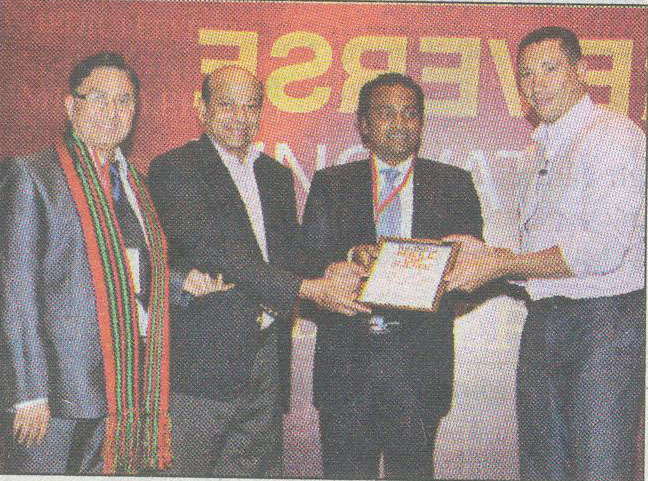
Team Apeejay stya & Svran Group(above) and Team ICICI Bank(below) with their awards
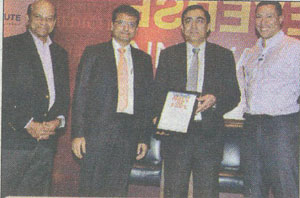 The four companies, out of 25 competing organisations, that have made their way info 'The Medici Innovation Hall of Fame,' are;
The four companies, out of 25 competing organisations, that have made their way info 'The Medici Innovation Hall of Fame,' are;
1. Apeejay Stya & Svran Group
2. ICICI Bank
3. Tata Consultancy Services
4. WNS Global Services
The award plaques were handed to the winning organisations by Vijay Govindarajan, professor of international business, Tuck School of Business, Dartmouth College and Frans Johansson, founder and CEO of The Medici Group.
Nagpur University finally cancels admissions of 'illegal' PGDCS&A students
Our Correspondent : 02 Feb. 2013
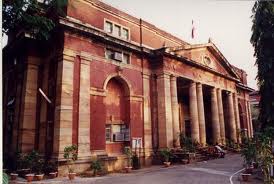 NAGPUR: The Nagpur University has finally cancelled admission of about 33 students of post-BSc diploma in computer science and application (PGDCS&A) who were illegally admitted by various colleges, including that of NU's own department. These illegal admissions were first exposed by TOI on October 5 citing ordinance number 24 of 2009 and followed by a series of reports. After this, pro-vice chancellor Mahesh Yenkie ordered an inquiry to verify the news contents. Subsequently, NU refused to provide them with the enrolment numbers, till the inquiry was over.
NAGPUR: The Nagpur University has finally cancelled admission of about 33 students of post-BSc diploma in computer science and application (PGDCS&A) who were illegally admitted by various colleges, including that of NU's own department. These illegal admissions were first exposed by TOI on October 5 citing ordinance number 24 of 2009 and followed by a series of reports. After this, pro-vice chancellor Mahesh Yenkie ordered an inquiry to verify the news contents. Subsequently, NU refused to provide them with the enrolment numbers, till the inquiry was over.
It was only in the second week of January that NU dispatched letters to four colleges conducting this course to cancel admission of ineligible students. A senior official from NU examination section confirmed that they had rushed the cancellation letters to colleges that included three from Nagpur and one from Bhandara. In fact, NU had cancelled admissions of 10 students from its own Inter-Institutional Computer Centre (IICC) who were found ineligible.
The ordinance number 24 clearly states that the students should have obtained a BSc degree of any statutory university with at least 50% marks and with mathematics and any other two of chemistry, physics, computer science, statistics, geology, electronics, environmental science, microbiology, biochemistry, biotechnology, botany and zoology as the subjects for the BSc or BE/BTech exams.
Head of NU's electronics department Satish Sharma, who is holding additional charge of IICC, also confirmed that he had received cancellation orders from the university. "Though we're yet to officially cancel their admission, we had conveyed to students in clear words that they can't be regularized as per rules. We've asked them to approach VC Vilas Sapkal," he said.
The pro-VC said they were contemplating to provide relief to these students by regularizing their admissions as per the verdict of the Nagpur bench of Bombay High Court in the case of MCA students. Even MCA scam was exposed by TOI after which their admissions were cancelled by NU. But the students got a reprieve from the court. "We're thinking of applying this verdict as it had mentioned that university can't cancel admissions at late stages but that has to be done at the threshold only," Yenkie said.
TOI had first exposed that nearly a thousand admissions were made illegally by blatantly flouting norms just like in the case of MCA. Four of IICC students who completed PGDCS&A were admitted to Ramdeobaba Kamla Nehru College of Engineering in the MCA course. They later appeared for the third and fourth semester exams, but after the illegalities came to fore, NU cancelled their admissions.
Timeline of TOI expose on illegal PGDCS&A admission
Oct 5 TOI first exposed illegal admission made by NU colleges in PGDCS&A citing ordinance number 24 of 2009
Oct 13 Pro-VC Mahesh Yenkie ordered an inquiry to verify the news content
Oct 23 NU refused enrolment numbers to such students
Jan second week NU exam section dispatches letters to colleges asking them to cancel their admissions
Jan 30 The colleges are yet to cancel their admissions and are giving hollow assurances to students
University of Pune plea against lower court's order dismissed, to pay interest for delay
Our Correspondent : 02 Feb. 2013
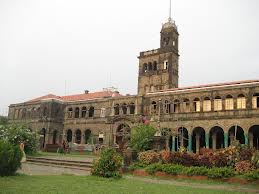 PUNE: The district and sessions court here has dismissed the University of Pune's (UoP) appeal against the lower court's order that directed the UoP to pay interest, at the rate of 10%, to a retired deputy registrar for delaying his pension and gratuity dues.
PUNE: The district and sessions court here has dismissed the University of Pune's (UoP) appeal against the lower court's order that directed the UoP to pay interest, at the rate of 10%, to a retired deputy registrar for delaying his pension and gratuity dues.
The court of additional district and sessions judge Prachi P Kulkarni, while disposing of the appeal on January 2, also dismissed a cross-objection filed by former deputy registrar Madhav C Khanwelkar, contesting the claim amount worked out by the university.
In December 2011, the UoP had preferred a first appeal in the Bombay high court against the lower court's order and had deposited Rs 56,905 with the high court's registry for the interest payable to Khanwelkar towards the delayed post-retirement dues. The case was later transferred to the sessions court here on the issue of pecuniary jurisdiction.
"In my opinion, the appeal as well as the cross-objection carries no merit and is liable to be dismissed," judge Kulkarni stated in the 25-page order. The court also held that the August 30, 2011 order by the trial court of joint civil judge (senior division) P S Duthade was 'proper and needed no interference'. The court has allowed Khanwelkar to recover the Rs 56,095 deposited by the UoP with the Bombay high court.
Khanwelkar, who was deputy registrar (academic), retired from service on October 31, 2004. A year before his retirement, the then UoP vice-chancellor (VC) Ashok Kolaskar and registrar D D Deshmukh had passed orders reverting his posting from deputy registrar to that of an assistant registrar after Khanwelkar had proceeded on a leave preparatory to retirement without sanction from the concerned authorities.
Khanwelkar challenged this in the University and College Tribunal (UCT), which passed an order on June 20, 2005 quashing the university's move to revert him to assistant registrar's post. A subsequent review appeal by the UoP was also dismissed by the UCT. Later, the university moved the Bombay high court.
After Kolaskar's retirement in February 2006, the then acting VC Ratnakar Gaikwad got the case withdrawn from the high court on July 18, 2006 and Khanwelkar's pension and gratuity arrears were paid from the period thereafter.
Khanwelkar moved the civil court in July 2007, claiming Rs 2.25 lakh as interest, at the rate of 12%, on the pension and gratuity arrears for the period between May 2005 and October 2006 and another Rs 2 lakh as compensation for mental distress caused by the varsity officials.
Disposing of the same, joint civil judge Duthade had held that both, Kolaskar and Deshmukh, were jointly responsible for not sending Khanwelkar's pension papers in time to the government. The court held that Khanwelkar had partly proved the case for interest on delayed payment of pension arrears, which should be at the rate of 10% for the one year and five month period between May 2005 and October 2006.
The court, however, rejected Khanwelkar's claim for Rs 2 lakh compensation on the grounds that the two former officers cannot be said to be individually responsible for the delay as they were discharging their duties as statutory officers.
The UoP had challenged this order while Khanwelkar filed a cross-objection contesting the Rs 56,905 amount worked out by the university for payment of interest on delayed dues.
|
|
|